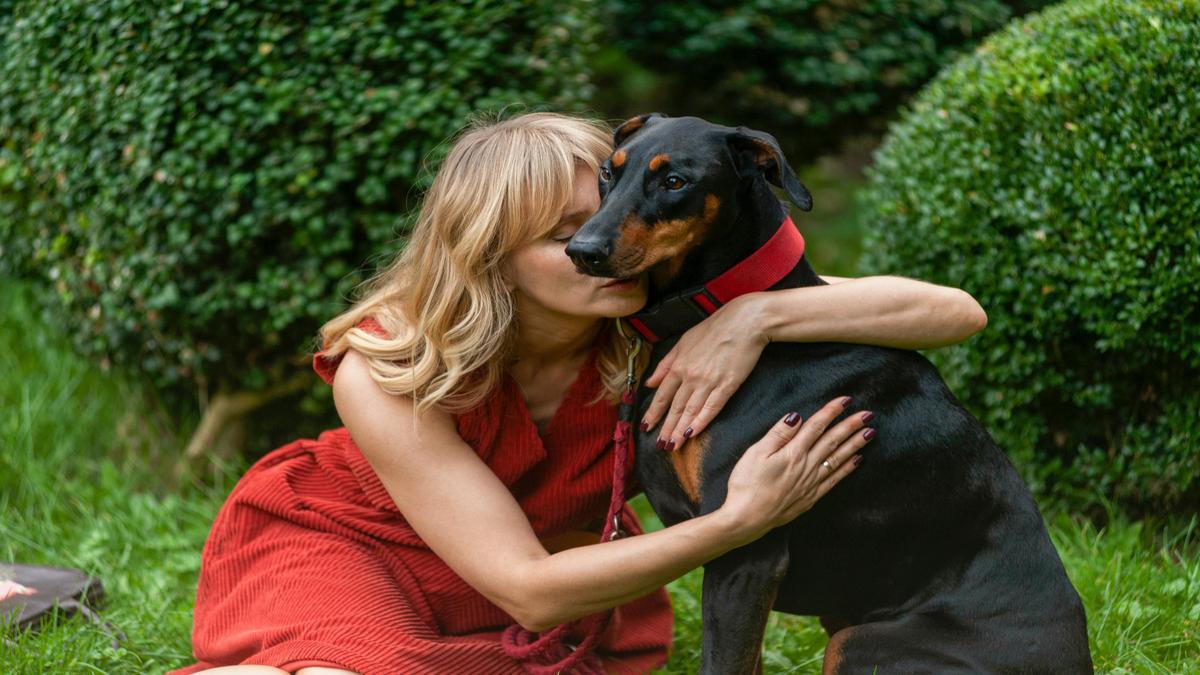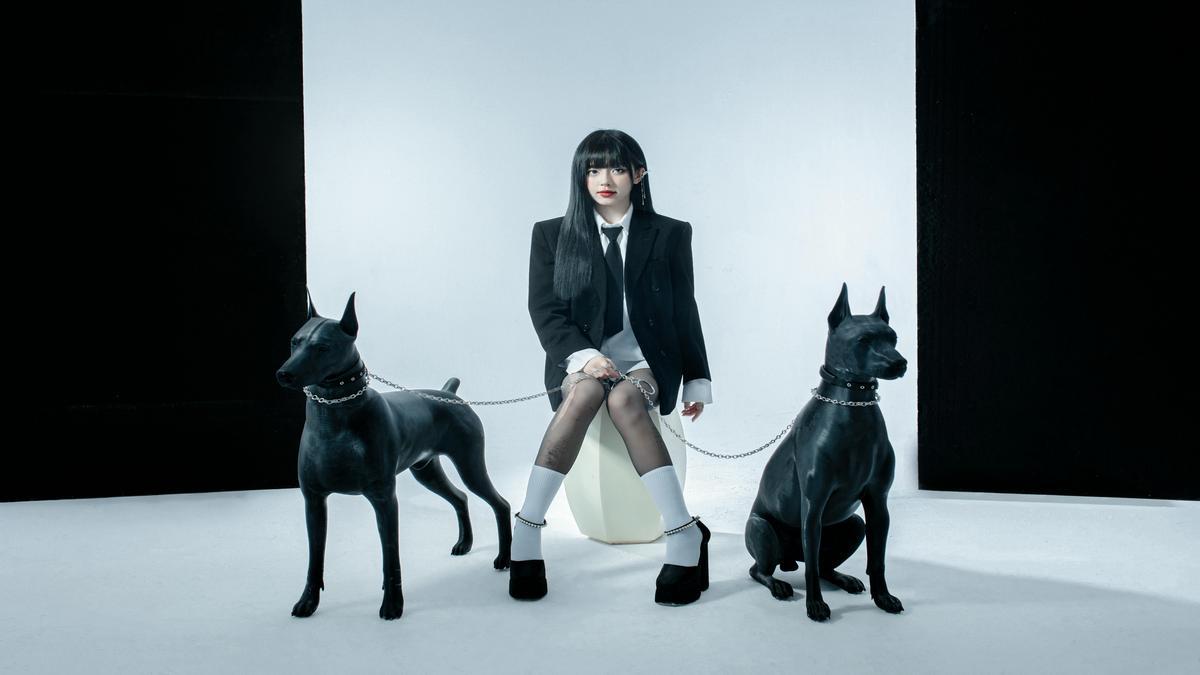Do you want to dive into the fascinating world of the Doberman Pinscher breed? From its origins to its unique characteristics, this article covers everything you need to know about these loyal and intelligent dogs. Get ready to uncover the history, evolution, interesting facts, and essential care tips for your beloved Doberman Pinscher companion.
Top Points
- Doberman Pinschers are loyal and protective dogs.
- They require regular exercise and mental stimulation.
- Training and socialization are essential for a well-behaved Doberman.
- Dobermans have a reputation for being fearless and alert.
- Regular grooming and veterinary care are necessary for Dobermans.

The History of the Doberman Pinscher
Origins of the Doberman Pinscher
The Doberman Pinscher is a breed that originated in Germany in the late 19th century. They were developed by a tax collector named Karl Friedrich Louis Dobermann who wanted a loyal and protective dog to accompany him on his rounds. He crossed several breeds, including the Rottweiler, Weimaraner, and German Pinscher, to create the Doberman Pinscher. These dogs were initially bred for their intelligence, strength, and loyalty, making them ideal working dogs.
Evolution of the Doberman Pinscher Breed
Over the years, the Doberman Pinscher breed has evolved to become one of the most popular and versatile breeds in the world. They are known for their sleek, muscular build, and their keen intelligence. The breed standard has been refined to emphasize their loyalty, fearlessness, and adaptability. Doberman Pinschers are now used in various roles, including as police dogs, search and rescue dogs, and therapy dogs.
Interesting Facts About the Doberman Pinscher
Here are some interesting facts about the Doberman Pinscher breed:
- Doberman Pinschers were originally bred as protection dogs.
- They are named after their creator, Karl Friedrich Louis Dobermann.
- Doberman Pinschers are known for their loyalty and protectiveness towards their families.
- They are highly intelligent and trainable, making them versatile working dogs.
- Doberman Pinschers have a distinctive appearance with their cropped ears and docked tails.
| Characteristic | Description |
|---|---|
| Size | Medium to large |
| Coat | Short, smooth |
| Color | Black, red, blue, fawn |
| Temperament | Loyal, fearless, intelligent |
| Lifespan | 10-12 years |
Doberman Pinschers are known for their sleek and muscular build, making them both agile and powerful. They have a distinctive appearance with their cropped ears and docked tails. This breed is highly intelligent and trainable, making them well-suited for a variety of roles.
Characteristics of the Doberman Pinscher
Physical Attributes of the Doberman Pinscher
The Doberman Pinscher is a sturdy and muscular breed known for its elegant appearance and athletic build. Here are some key physical attributes of the Doberman Pinscher:
| Attribute | Description |
|---|---|
| Size | Medium to large breed, typically weighing between 60-100 pounds |
| Coat | Short, sleek, and easy to maintain, usually in black, red, blue, or fawn |
| Ears | Traditionally cropped for an alert and sharp appearance |
| Tail | Docked to a short length for a balanced look |
| Eyes | Alert and intelligent expression, usually in shades of brown |
| Overall Appearance | Powerful and well-proportioned body with a confident gait |
Temperament of the Doberman Pinscher
The Doberman Pinscher is renowned for its loyalty, intelligence, and protective nature. Understanding their temperament is crucial for effective training and care. Here are some key points about the temperament of the Doberman Pinscher:
- Loyal: Dobermans are fiercely loyal to their families and make excellent guard dogs.
- Intelligent: They are highly intelligent and quick learners, making them versatile in various roles.
- Energetic: Dobermans are energetic dogs that require regular exercise and mental stimulation.
- Protective: They have a strong protective instinct and will defend their loved ones if they sense a threat.
- Affectionate: Despite their tough exterior, Dobermans are affectionate and thrive on human companionship.
Training Tips for a Doberman Pinscher
Training a Doberman Pinscher requires consistency, positive reinforcement, and patience. Here are some training tips to help you nurture your Doberman’s potential:
- Start Early: Begin training your Doberman puppy as soon as you bring them home.
- Socialization: Expose your Doberman to various people, animals, and environments to ensure they are well-rounded.
- Positive Reinforcement: Use treats, praise, and rewards to encourage good behavior.
- Obedience Training: Teach basic commands such as sit, stay, come, and heel.
- Exercise: Provide plenty of physical and mental exercise to keep your Doberman stimulated.
- Consistency: Be consistent in your training methods and expectations to avoid confusion.
- Leadership: Establish yourself as the pack leader to earn your Doberman’s respect and obedience.
By following these training tips and understanding the unique temperament of the Doberman Pinscher, you can nurture a well-behaved and well-rounded companion.
Caring for Your Doberman Pinscher
Exercise Needs of a Doberman Pinscher
When it comes to exercise, Doberman Pinschers are high-energy dogs that require regular physical activity to stay healthy and happy. Here are some tips to help you meet their exercise needs:
- Daily Walks: Take your Doberman for at least two long walks each day to help them burn off energy and stay mentally stimulated.
- Playtime: Engage in interactive play sessions with toys like balls or frisbees to keep your Doberman entertained.
- Running: If you’re a runner, consider bringing your Doberman along for a jog to give them a good workout.
- Obedience Training: Incorporate training sessions into your Doberman’s routine to provide mental stimulation and physical exercise.
Grooming Tips for Your Doberman Pinscher
Proper grooming is essential to keep your Doberman looking and feeling their best. Here are some grooming tips to help you maintain your Doberman’s coat:
| Grooming Tip | Description |
|---|---|
| Brushing | Regular brushing helps remove dead hair and keeps the coat shiny. |
| Bathing | Bathe your Doberman as needed to keep them clean and smelling fresh. |
| Nail Trimming | Trim your Doberman’s nails regularly to prevent them from getting too long. |
| Ear Cleaning | Clean your Doberman’s ears weekly to prevent infections and buildup of wax. |
| Teeth Brushing | Brush your Doberman’s teeth regularly to maintain good oral hygiene. |
Feeding Your Doberman Pinscher
Proper nutrition is crucial for your Doberman’s overall health and well-being. Here are some feeding tips to help you provide a balanced diet for your furry friend:
| Feeding Tip | Description |
|---|---|
| High-Quality Food | Choose a premium dog food that is specifically formulated for large breeds. |
| Proper Portions | Feed your Doberman according to their weight and activity level to prevent obesity. |
| Fresh Water | Always provide fresh, clean water for your Doberman to stay hydrated. |
| Treats in Moderation | Limit treats and avoid feeding them table scraps to prevent digestive issues. |
| Consult Your Vet | Consult your veterinarian for advice on the best diet for your Doberman. |
Health Considerations for Doberman Pinschers
Common Health Issues in Doberman Pinschers
When it comes to Doberman Pinschers, it’s essential to be aware of the common health issues that may affect this breed. By staying informed and taking proactive measures, you can help ensure that your furry friend stays happy and healthy for years to come. Here are some of the typical health problems that Doberman Pinschers may face:
| Health Issue | Description |
|---|---|
| Dilated Cardiomyopathy | A condition where the heart becomes enlarged and weakened, leading to heart failure. |
| Von Willebrand’s Disease | A blood clotting disorder that can result in excessive bleeding, especially after injuries. |
| Hip Dysplasia | A genetic condition where the hip joint doesn’t develop correctly, leading to lameness and pain. |
| Hypothyroidism | A deficiency of thyroid hormones that can cause weight gain, lethargy, and skin issues. |
| Wobbler Syndrome | A spinal condition that causes compression of the spinal cord, leading to weakness and incoordination. |
Preventative Care for Doberman Pinschers
Taking preventative care measures is crucial in ensuring the well-being of your Doberman Pinscher. By being meticulous and proactive, you can help prevent many health issues and detect any problems early on. Here are some tips for preventative care for your Doberman Pinscher:
- Regular Exercise: Doberman Pinschers are an active breed that requires regular exercise to stay healthy and happy.
- Balanced Diet: Providing a nutritious and balanced diet is essential for maintaining your Doberman Pinscher’s overall health.
- Regular Veterinary Check-ups: Scheduled visits to the veterinarian can help monitor your Doberman Pinscher’s health and detect any issues early on.
- Dental Care: Regular dental care, such as brushing your dog’s teeth and providing dental treats, can help prevent dental problems.
- Parasite Prevention: Protect your Doberman Pinscher from fleas, ticks, and heartworms by administering preventative medications.
- Training and Socialization: Proper training and socialization can help prevent behavioral issues in Doberman Pinschers.
Veterinary Visits for Your Doberman Pinscher
Regular veterinary visits are crucial for maintaining your Doberman Pinscher’s health. During these visits, the veterinarian can conduct examinations, administer vaccinations, and address any concerns you may have about your dog’s health. Here are some key aspects of veterinary visits for your Doberman Pinscher:
| Veterinary Visit | Description |
|---|---|
| Annual Check-ups | Annual check-ups are essential for monitoring your Doberman Pinscher’s overall health. |
| Vaccinations | Vaccinations help protect your dog from serious diseases and are vital for prevention. |
| Blood Tests | Blood tests can detect early signs of health issues such as hypothyroidism or anemia. |
| Parasite Control | Parasite control measures such as flea and tick prevention are crucial for Doberman Pinschers. |
Frequently Asked Questions
What is the history of the Doberman Pinscher breed?
The Doberman Pinscher breed was developed in Germany by a tax collector named Louis Dobermann in the late 19th century. He wanted a loyal and protective companion to accompany him on his rounds.
How big do Doberman Pinschers get?
Doberman Pinschers are a large breed, typically standing between 24 to 28 inches tall at the shoulder. They can weigh anywhere from 60 to 100 pounds, with males being larger than females.
Are Doberman Pinschers good guard dogs?
Yes, Doberman Pinschers are known for their loyalty and protective nature. They are often used as guard dogs, as they are alert, intelligent, and fearless when it comes to protecting their family.
What is the temperament of a Doberman Pinscher?
Doberman Pinschers are known for being loyal, affectionate, and energetic. They are highly intelligent and trainable, making them great companions for active individuals or families.
How much exercise do Doberman Pinschers need?
Doberman Pinschers are a high-energy breed that requires regular exercise to stay healthy and happy. Daily walks, playtime, and mental stimulation are essential to keeping your Doberman content.

